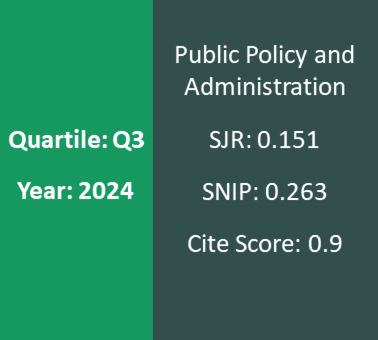Digital Transformation's Impact on Sustainable HR Management: Comparative Study of Work-Life Balance and Skill Development in Public versus Private Sectors of a Developing Country
DOI:
https://doi.org/10.5755/j01.ppaa.22.3.35071Keywords:
Sustainable HRM, Digital Transformation, Work-Life Balance, Skill Development, Trainings, Online PlatformsAbstract
The quick development of digitalization has transformed the nature of work and has brought new opportunities for businesses to achieve sustainable human resource management in many ways, including remote working as a means to achieve work-life balance and training access for new skill development. Objective - the objective of this study is to offer a comprehensive understanding of the challenges faced by private and public organizations in Kosovo. This study tries to make a comparison between these two sectors aiming to help public administration policymakers spot the gaps between sectors and improve digitalization in the public sector. Methods: we have conducted a qualitative analysis. 21 interviewed businesses explained in detail the process of digitalization and its effect on achieving work-life balance and new skills development as ways to achieve SHRM. Results: according to the analysis, digitalization is improving both public and private workers' skills. However, private companies are more likely to use remote work to achieve work-life balance, while in public organisations; digitalization has mostly helped in the training of employees. Conclusions: In general, digitalization has helped businesses achieve SHRM. Despite the fact that, in general, private-sector businesses benefit more from digitalization than public organizations.





